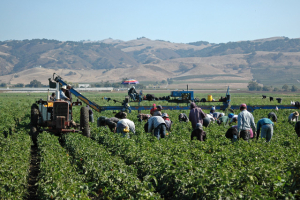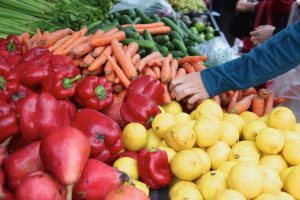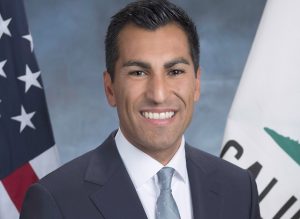The Nitrogen Challenge
October 12, 2009 Michael R. DimockLate last week mass media woke up to a core challenge of civilization: providing sufficient nitrogen to feed plants without exacerbating climate change and water degradation in a world going from 6 to 9 billion souls.
Writer Michael Pollan was on NPR’s Talk of the Nation last week with two farmers, Blake Hurst and Troy Roush, when this problem came up in the conversation. Then on Friday the Wall Street Journal ran an editorial by Tim Groser, New Zealand’s minister of trade and associate minister for climate-change issues, calling for an international effort to seek solutions. In that op-ed he stated that “agricultural emissions are typically a waste of productive inputs. For example, nitrogen lost from fertilizer is no longer available to boost production, and carbon lost from the soil reduces the future production potential of the land.” Now nitrogen has become a topic of interest on Twitter, Facebook, and blogosphere.
Among those who better understand agriculture and food systems, nitrogen has been known as a core challenge for decades. Sadly, the general public and too many policymakers don’t know, think or care about it. The lack of focus on nitrogen is dangerous for us all.
In the Talk of the Nation interview, Roush, a corn grower, raised the issue of nitrogen. Then Hurst quoted Pollan’s published factoid that 40% of the planet’s people are alive today because of the ability to use fossil fuels to synthesize nitrogen from the ambient atmosphere. In fact it takes 35% of all energy used in agriculture to create that nitrogen and then some more energy for machinery to put that nitrogen on the land to feed plants and ensure robust yields.
As the population increases, more nitrogen is required to feed crops that ultimately feed people. So more fossil fuel is burned to produce nitrogen, which drives energy prices up, releasing more CO2 into the atmosphere. In a linked problem, up to half of the nitrogen placed on the land is washed off by rains into water, which kills life in water bodies, or it is volatilized into the atmosphere adding to the climate problem (volatilized nitrogen is a destructive greenhouse gas). Management of nitrogen is a huge problem because of its energy intensive source and toxic leakage into the environment.
Solutions were briefly touched upon in the Talk of the Nation discussion. In South America an 8-year crop rotation is being used in which animals are grazed on grasses for 5 years. They deposit manure the entire time and then grain crops can be grown for 3 years on that same ground without adding nitrogen. Organic farmers know about maximizing nature’s supply of nitrogen. Learning from organic systems, farmers all over the world are experimenting with cover crops grown in a rotation or rich composts that fix nitrogen in the soil. Using the natural systems of plants and animals to create the nitrogen we need is the right approach, but we must scale up and broadly adopt methods.
Massive experiments are needed to perfect approaches in different parts of the world and that is where New Zealand comes in. They want a worldwide collaboration on this problem to ensure agriculture can be sustained. They have offered a plan. I am hopeful that the USDA, associations of farmers across the globe, and other nations will heed the call. Without massive efforts there are dire consequences and tough choices. In fact, much higher food costs would be the least of our problems.
No matter the ultimate solution, it is probable that we will need to grow less corn to feed animals. Any one who knows the facts about the problems of confined animal feeding operations (CAFOs) that feed corn and other grains to fatten animals, must believe that less feed corn and fewer CAFOs is a very good thing. It will be healthier for the farmers, land, water, animals and all of us, who suffer from harmful animal fats and overuse of antibiotics caused by CAFO systems.
So, I am thrilled that we can now begin talking about the nitrogen challenge at the core of civilization’s need for a sustainable food system. Thank you Blake, Michael, Troy, and NPR for starting the conversation.



